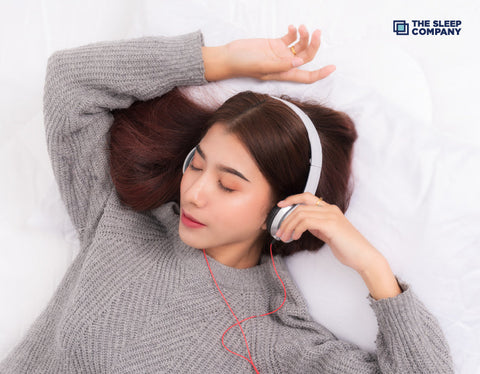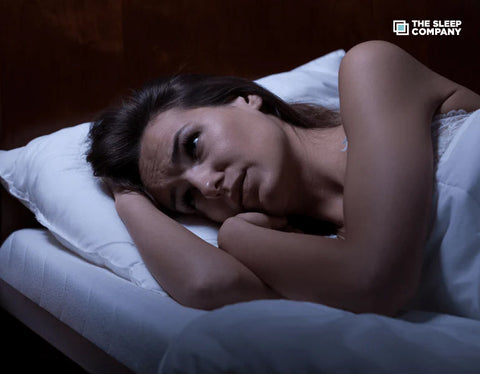My Cart

How to Get Quality Sleep during Stressful Times

Many people who suffer from anxiety disorders struggle to fall or stay asleep, and it can become difficult to determine whether the inability to fall or stay asleep is causing the anxiety or whether the anxiety is causing the inability to fall or stay asleep. It’s possible that the answer is both.
It’s a known fact that stress and anxiety can either initiate sleep issues or exacerbate those that are already present. A lack of sleep can have a negative impact on your mood, contributing to irritation and even despair in some people. During the various stages of sleep, your brain performs critical operations that help you learn new things and form new memories. These functions also leave you feeling refreshed and rejuvenated.
What is stress?

Everyone, at some point or another, will experience the normal human reaction known as stress. In fact, the human body is intended to be put under stress and to respond to that stress. Your body will go through both physical and mental changes in reaction to the changes and challenges (stressors) that you put it through. This is a form of stress.
The ways in which your body reacts to stress help it adapt to new circumstances. The ability to remain vigilant, motivated, and prepared to avert danger is a beneficial side effect of stress. For instance, if you have a crucial test coming up, chronic stress may encourage your body to work harder and keep you awake for a longer period of time. However, stress can become problematic when the factors that cause it persists without being alleviated or replaced with times of rest.
The rate of your heartbeat, your breathing, and even the changes in your vision are all under the direction of your body’s autonomic nervous system. The “fight or flight” response is the body’s built-in stress response, and it assists the body in dealing with stressful conditions.
When a person is under stress for an extended period of time, this is referred to as chronic stress, and it causes the body to experience the continued activity of the stress response, which leads to wear and tear. The patient begins to exhibit physical, emotional, and behavioural symptoms.
What is quality sleep?
A person’s level of self-satisfaction with the entirety of their sleeping experience is the defining characteristic of their sleep quality. The four components that make up the quality of one’s sleep are as follows: sleep efficiency; sleep latency; sleep duration; and waking up soon after falling asleep.
Antecedents include physiological factors (such as age, circadian rhythm, BMI, NREM, and REM sleep), psychological ones (such as stress, anxiety, and depression), and environmental factors (such as room temperature, television/device use), in addition to family and social commitments.
Feeling rested, having normal reflexes, and having healthy relationships are all benefits of getting sufficient amounts of high-quality sleep. The implications of having poor sleep quality include increased levels of weariness, irritability, daytime dysfunction, slower responses, and consumption of caffeine and alcohol.
How to get quality sleep during stress?

Let’s have a conversation about the steps you can take throughout the day and in the hours leading up to bedtime in order to decrease the possibility that stress will keep you awake at night.
- Maintain a schedule: Maintain a consistent sleep and wake schedule throughout the week, including on the weekends.
- Be Mindful: Try a relaxation technique just before going to bed, such as awareness, deep breathing, or meditation; these activities all improve the amount of time spent sleeping as well as the quality of sleep.
- Reduce screen time: Put screens to sleep as soon as possible. It is best to avoid using digital gadgets, such as Televisions, phones, laptops, and tablets, in the hours leading up to night because the blue light that is released by these devices might throw off your body’s internal clock. Finding a technique to unwind that does not involve technology can be helpful in reducing stress.
- Take time to relax: To unwind and relax, take a steamy shower or bath. Getting out of the warm water and into a bedroom where the temperature is lower will enable your body temperature to fall, which will naturally put you to sleep.
- Caffeine intake: A couple of hours before going to bed, you should refrain from consuming any caffeine or alcohol, as well as large meals, items that can cause heartburn, and consuming a lot of fluid.
- Exercise Regularly: Exercising is an excellent method for relieving stress, and it has also been demonstrated to enhance the quality of sleep, especially for individuals who struggle with insomnia. However, you should try to avoid scheduling your more strenuous workouts too close to your bedtime. Make it a goal to complete all of your workouts at least 3 hours before going to bed.
- Worry in the day: You might find it helpful to worry earlier in the day. When you’re attempting to get some shut-eye but your mind is preoccupied with worries, it can be very difficult to relax enough to drift off to sleep. Set aside fifteen minutes in the course of the day to think about these things. A good strategy to deal with stress and avoid it from messing with subsequent sleep is to write a to-do list or think about potential solutions.
- Calm your nerves: Have a cup of tea made from herbs. Teas made from chamomile and other herbal ingredients can help relax and soothe the body, which in turn can make it simpler to nod off. You might want to combine it with a satisfying read and turn the activity into a sort of nightly ritual to wind down.
- Invest: Make an investment in a comfortable mattress that will help your body to unwind fully. Buy the best mattress online that will provide adequate support for your back without making your body rigid or unnatural in any way. The most important items for maintaining good sleep hygiene in your bedroom are your mattress and pillows.
In conclusion
Your quality of sleep and your stress levels are intertwined. Ultimately, finding strategies to better control one can help you get relief from the other.
If you’ve tried all of these techniques and you’re still having trouble falling or staying asleep, you might want to talk to your primary care physician or to a specialist who specializes in sleep disorders. There is a wide range of potential treatments for conditions such as generalized anxiety disorder and sleep disorders.






























































